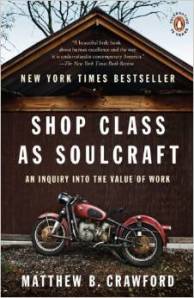
Allegory of Fortune (detail), Salvator Rosa, about 1658–59, www.getty.edu
“Do not give dogs what is sacred; do not throw your pearls to pigs. If you do, they may trample them under their feet, and turn and tear you to pieces.” — Matthew 7:6
In part I, it was noted that in order to reflect more on how the Church should try to teach God’s law to all as it goes into exile, we could look at the debate that happened a few months ago between Ross Douthat and Joseph Bottum about the church and same-sex marriage. We saw that Bottum argues that since the culture has largely forgotten “the essential God-hauntedness” of the world, if we insist that same-sex marriage should not be allowed in civil law, persons will not understand this. We should rather focus our energies on trying to “re-enchant” the world.
First of all, I note that intelligent Lutherans like Dr. Gene Veith have for years been emphasizing the primacy of things like art, literature and film as vehicles for basically doing just this – all while not ignoring the political realm as well. Second, I think one must seriously wonder about the wisdom of Bottom’s argument given how the nature of sexuality naturally figures into the current debates so prominently. What Matthew B. Crawford says in his book “Shop Class as Soulcraft: an Inquiry into the Value of Work” comes to mind here:
“Stepping outside the intellectually serious circle of my teachers and friends at Chicago into the broader academic world, it struck me as an industry hostile to thinking. I once attended a conference entitled “After the Beautiful.” The premise was a variation on “the death of God,” the supposed disenchantment of the world, and so forth. Speaking up for my own sense of enchantment, I pointed out, from the audience, the existence of beautiful human bodies. Youthful ones, in particular. This must have touched a nerve, as it was greeted with incredulous howls of outrage from some of the more senior harpies.” (pp. 104-105).

Crawford, who incidently has heterosexual inclinations, makes a good point here – there is a real sense that, despite what some have called the “buffered self”, there is still much enchantment here – at times, leading to thoughts, words and deeds that go hand in hand not only with adoration but real worship. See the Da Vinci Code veering in this direction.* But there is the wider point Bottom’s nemesis in the debate, Ross Douthat, makes:
…in a culture that’s increasingly libertine, atomized, and postfamilial, some of what the church has to say will necessarily have to do with sexuality. And in arguing about sexuality, there is no honest way for the church to avoid stating its position on what the legal definition of marriage ought to be—even in a world where that definition has changed and doesn’t seem likely to change back.
We can certainly take this even further. In the bible, both adoption and marriage – which always includes a physically intimate, or sexual, component – are the two great metaphors of the Bible: this is how God deals with His people. Further, marriage is arguably the stronger of the two metaphors – so perhaps in this sense at least, Christianity is mainly about “sexual issues” (see this interesting post by Rod Dreher that I initially wanted to rebel against**). Though we might find the imagery put forth in passages like Ezekiel 16 disturbing in many ways – the sexualized symbolism here is jarring to say the least – this uncomfortable parable has much to teach us about the nature of God’s relationship with those who trust in Him (I pondered this more here, offering a counterpoint to assertions made in Justification is for Preaching, ed. Virgil Thompson).

Our adoption and marriage with Him – our salvation – is intimately tied up with notions not only of a secure identity and meaning (individually and corporately) but protection from all of the enemies – invisible and visible – who would mean to leave us in the lurch or worse (for ultimately, there is no salvation without corresponding damnation). Here is the One who cares about us weak and helpless ones, those who like sheep have gone astray – and who comforts and protects us. Note also that here we see how the publicly voiced concerns of same-sex marriage opponents – that this concept really leaves children in the lurch (listen to this short soundbite from Jennifer Roback Morse) – dovetails seamlessly with this biblical understanding of The True Marriage: God helps – saves – those those who cannot help – save – themselves.
While it is true that we would not have needed the kind of protection God now gives us before the fall into sin, here we can see how – as regards marriage – even the partial fulfillment of the law in the fallen creation hearkens us back to innocence, when love, trust, and security reigned. Ephesians 5 reveals more than God’s grace for sinners alone – it reveals God’s love for His human creatures. Christ’s specific actions for our redemption are not a completely new picture, but only more fully reveal this picture.
Of course the idea of gay marriage declares war against this, and elevates a sterile and fruitless icon to the fore. And as we know, the law always teaches, and this is one teaching that cuts away not only at God’s law – but His precious Gospel as well (in his marriage sermon on Eph. 5 Luther speaks of the union with Christ as a cause and an effect of justification***). How can we not speak up and out?
Again, here one sees that upholding the preaching of the Gospel goes hand in hand with the importance of continually upholding and making known God’s law. So, when the time is right, the arguments like those put forth by Douthat and Morse should continually be held before a world out of whack – even as we look to frame this within a greater purpose yet, that is the goal to verbally emphasize and live out in our lives Christ’s dying love for all – even the greatest of sinners.

A more pragmatic argument would be that if the church does not stand now, it will show itself to be weak (yes, there is a way that we should be weak but this is not it) and invite the state to tell it that it must, for example, perform same-sex weddings (as the church in Norway is now finding out). We could always assure ourselves that we should fight because the existence of Christian faithful believers in the world is critical so that the Gospel in its narrow sense (Christ’s death and resurrection for our forgiveness, life and salvation) – not to mention the full counsel of God of course – must be preached in its truth and purity. That said, I believe that this will inevitably be seen as a more selfish argument **** – and of course many of those calling the shots will not care about what they consider our incoherent “sense of our identity” one whit. That is why we fight battles like these for and on the basis of care and concern for our neighbor (skeptics please read this and this from Rod Dreher yesterday) – here is where folks like Douthat and Morse are dead right.*****
What might be said that calls into question what I have written here? I discussed these articles at length with some wise friends. One said that
“[Given fallen human nature and man’s corresponding ability to sear his conscience] the state may therefore have to concede things to sinners the church never could. This is done to give some order to something that otherwise would be totally devoid of order and so as to reign in the worst abuses. The law here functions as more or less imperfect curb of sin, in other words, and not as a means to eradicate sin in the world and to establish some perfect society here on earth (albeit even just outwardly). [Prudence demands the Christian politician, do this at particular times in order] to avoid the greater evil of total chaos in the political realm.”
It is true that general cultural appeals and exhortations to consider God’s law – even when done with the exquisite and carefully subtlety of an N.T. Wright (see below) – may accomplish nothing more than harden existing positions. And yet my concern here is that we might underestimate what it is possible to persuade the “left hand kingdom” (God’s rule in the world by law, reason, and force, as opposed to the “right hand kingdom”, where he rules hearts by the forgiveness, life and salvation his church delivers – see more here) to accept. There are times when we should take a stand, seeking to persuade persons regarding God’s laws not to “get a perfect society”, but to help our neighbors, in the abstract and the concrete, particularly the most vulnerable.******
My friend is right that “social conservatism is not a substitute for, or tantamount to, faithfulness to God’s Word” but at the same time, given the importance of the battles that Morse are Douthat are fighting here, it seems to me that these are some key questions:
- How can we know when our words will just harden existing positions and when they, through the power of God’s Spirit, might cause persons to question their assumptions?
- Is there some way to get a good sense of when and where to speak and when to just “give them over” (Romans 1) and stop speaking?”*******
I would be interested in any reflections persons have on these questions. I am not going to say that all who take Buttom’s position are necessarily wrong – or even insist that they lack the necessary courage. That said, I am going to say his position is, as a whole, unwise – for a whole host of reasons.********
As Peter Malysz (see part I) would no doubt warn, it is true that even fighting for a righteous cause can help feed our sinful flesh, filling us with a confident and noxious self-righteousness – before both neighbors and God. That said, pastors and theologians can and still must not hesitate to, by the grace of God, take the logs out of their own eyes and make the case of the Law as a curb. Regarding same-sex marriage, N.T. Wright gives us an excellent example of how to do that intelligently and with class (step one: like Paul, value a liberal arts education – see Acts 17). In addition, the video that I linked to in a previous post would be invaluable in revealing the gross untruth of the mono-logic that insists that things like “same-sex marriage” are equal in every way to real marriage (see below as well).
.
Pastors in particular should take every opportunity that is given to them to grab the microphone and speak to the wider culture.********* Always talking about the Gospel primarily but never at the expense of His Law, for it is good indeed, even if it takes utter collapse for the majority of a culture’s elites to start to think this might indeed be the case. If Christ does not come before that happens, many will realize that we were right.
Speaking as an adjunct university instructor, all the students I get in my classes on Christianity, although they may not have been in church for years (or are a different religion, or are completely non-religious), seem to be surprisingly persuadable on these issues. I am more or less convinced that is the case with many in the population as a whole (not all – some are very hardened, but in 220? students I have never met one) – they just need someone to talk to them intelligently about it.
So proclaim the whole counsel of God – to church and world – and try your best to do it with intelligence, class, and humility – before God and men.
FIN
Notes:
* Mark Henderson responding to tODD at Gene Veith’s blog on a “Christians in exile” post points out that: “ paganismhas always been mainly about [sex], and that is what Christianity is increasingly coming up against today: modern versions of paganism for whom sex in all its depraved variations is tantamount to a religious rite – the gateway to personal fulfillment. That is, of course, idolatry, and that is why sex is the arena in which the church is being attacked today: the Christian sexual ethic is a confessional stance against the idolatry of paganism just as it was in the 1st C[entury]”
**What about the Creeds we basically hold in common, I thought? Well, maybe one can make that case in a bit of a qualified way, but Dreher has a point as well.
***While it is true that we do not want to be just talking about sex all the time, maybe we should be emphasizing *this* marriage – this intimate union – more.
****Here is that argument anyways, with the situation the church in Norway faces in mind:
Why not speak out now as much as we are able? Should we not do this? While we do not know the mind of God as regards the particulars, should we not insist that ultimately it is pleasing to God – much better, according to Him – that Christians would be able to freely preach and worship? (because in effect, I believe the alternative is to say that it pleases God when there are less Christians in society and it please Him when His word is rejected).
We can bravely talk about how we can take it if they take away our tax exempt status, don’t allow Christian hospitals to hire Christian workers, don’t allow Christian groups to be organizations approved by the university, take away our accreditation, etc. But are we all brave about this really because we think it would stop there?
If that’s the case, it evidently doesn’t. Christians can certainly expect to continue to lose the perks that they have had up to this point, and probably much more.
*****And it does us well to realize that in opposing all notions of gay marriage, for example, we are not only upholding the notion that men and women are not irreplaceable and that we should do everything possible to make sure that children know their biological parents and can be raised by them, but we are also helping those in the gay community as well: http://www.firstthings.com/web-exclusives/2013/05/what-we-can-learn-from-same-sex-couples and http://www.lifesitenews.com/news/cdc-94-to-95-percent-of-hiv-cases-among-boys-and-young-men-linked-to-gay-se
****** Re: church and state, its always hard for me to negotiate what things are like now with what they were like in Luther’s day and then the pre-Constantinian days… and then what they should be. Ideally (as ideally as a fallen world can imagine) should the state have the authority to enforce the table of the 10 commandments? If more and more persons were to become Christian and this could be done, should it be done? As these questions are considered I think this way: it seems to me that the state would be incompetent to judge persons by the Scriptures without the Church. But then would it not be the Church and its clergy who are basically in charge? (as they would have to correct the Christian ruler were he to do things less than ideally, and ask – insist? – that he obey).
******* We can’t! Which is why, when it comes to having the microphone to speak to the wider culture, we should be more like Douthat – who more or less always writes in thoughtful fashion tempered by Christ’s love – and not Bottom. Perhaps even if no one is changed. Both the nature of our enemy and the love of God for that enemy demand it. And yes, I think we should have done the same thing when it came to easy divorce. That was another watershed moment. The church rightly saw the issue of abortion as one to fight on, but not this one (and now, just recently, they have 1 day divorce through the courts in California).
******** One other reason is that this approach often seems to go hand-in-hand with theological outlooks that are, even if not unorthodox, are readily “hi-jackable”. There are also theologies that are simply wrong that could readily be appropriated by persons who believe that this aspect of “God’s law” should change, even if those putting forth the theology do not appear to want to change God’s Law. For example, Mark Mattes, a frequent contributor to LOGIA, writes that Jesus, in becoming sin for us, was ‘”in the end justly accused as a violator of the Torah – God’s own law….” Mark Mattes, “The History, Shape, and Significance of Justification”, in in Virgil Thopson, ed.,Justification is for Preaching, (Eugene: Pickwick, 2012), 53.”
As one digs deeper, they realize that a big part of these debates has to do with anthropology. Is the fallen human being, who certainly has a “relationship with God”, totally human, in the image of God? It is true that in fallen man this image is lost… but he still has some residue of his origin within him. Therefore, in Luke 3, Adam is called “the son of God” and in Psalm 82:6 Jesus says “You are gods, all of you, sons of the Most High.” Man’s “relation” to God was that he was specifically created to be something different than the rest of creation (also note that Luther said people were created in God’s image before the beginning of time [see Luther’s works 1:75]. So while we cannot say of each person born that they are *in* the Image of God [since original sin is present, and causes the absence of this image], we can still say that each person is created by God in His image. The power of sin is not something that God creates).
********* Let’s say you are given the chance that Kurt Marquart often had or Pastor Charles St. Onge has to write for a local newspaper. What should your articles contain, in one fashion or another? a) intelligent and discussion of issue people are thinking about (like Wright) ; b) mention that the church’s position cannot change, even if the true church is marginalized ; c) some direction to, or hint of, the first table as greater issue, even as thankful for non-Christian neighbors as co-belligerents ; and d) the Gospel, which you note, transcends all our earthly politics. In any short piece, you insist that you want to talk about all those things in one way or another. Further, you insist to local editors that you need to see the result of their editing before they publish your words.











